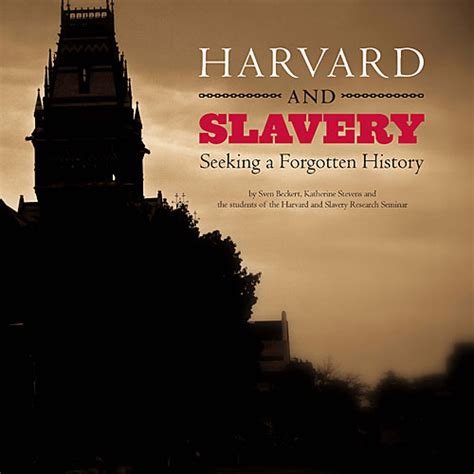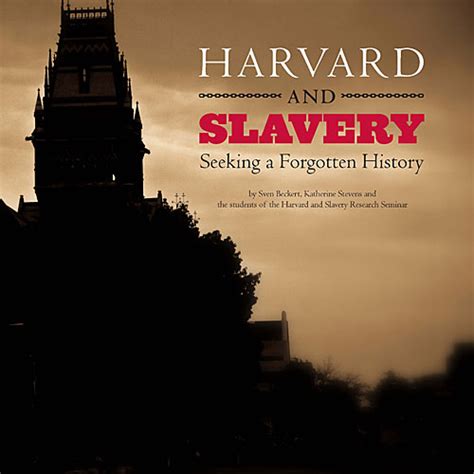
Parents attending kindergarten graduations at a California school district are reportedly facing a controversial new rule prohibiting them from cheering, clapping, or making noise during the ceremonies, leaving many baffled and frustrated. The policy, intended to create a calmer and more equitable environment for all students, has sparked a heated debate about balancing decorum with parental support and celebration.
The Pleasant Valley School District in Camarillo, California, implemented the “no noise” rule at its kindergarten graduation ceremonies this year, leaving many parents stunned and upset. According to parents who attended the events, the district explicitly forbade cheering, clapping, or any form of audible celebration during the ceremonies as each child received their certificate. The rationale behind the policy, as explained by the district, is to ensure that all students feel equally valued and to prevent any perceived favoritism or disruption during the proceedings.
“We were told before the ceremony, ‘no cheering, no clapping, no noise,'” one parent told Yahoo News. “It was bizarre. You could hear a pin drop.” This sentiment was echoed by numerous other parents who expressed their disappointment and confusion over the restrictive rule. Many felt that the graduation ceremony was a significant milestone for their children and a moment that deserved to be celebrated with enthusiasm and support.
The school district’s decision has ignited a widespread discussion about the appropriateness of such restrictions at kindergarten graduations. While some parents understand the desire to create a calm and inclusive environment, others argue that the policy stifles the natural joy and excitement associated with these events. The debate highlights the challenges schools face in balancing the needs of all students while also recognizing the importance of parental involvement and support.
“I understand the intention behind it, but it felt like they were taking away a part of the celebration,” another parent commented. The district’s attempt to create a uniform experience for all students has inadvertently created a sense of alienation and frustration among many parents who felt their ability to support and celebrate their children was unfairly curtailed.
The Pleasant Valley School District has defended its policy, stating that the “no noise” rule is aimed at creating a more equitable and respectful environment for all students. According to district officials, the policy is intended to prevent situations where some students receive more enthusiastic applause or cheering than others, which could potentially lead to feelings of exclusion or inadequacy.
“Our goal is to ensure that every child feels celebrated and valued,” a district spokesperson explained. “We believe that a calm and orderly ceremony allows us to focus on each student’s achievement without creating unintended comparisons or disruptions.”
However, many parents remain unconvinced, arguing that the policy goes too far in its attempt to control the environment. They contend that the natural excitement and joy of a kindergarten graduation are an essential part of the experience and that the district’s restrictions stifle the spontaneous expression of support and pride.
“It’s a kindergarten graduation,” one parent exclaimed. “These kids are five years old. They deserve to be celebrated, and their parents should be able to show their support.”
The controversy surrounding the “no noise” rule in the Pleasant Valley School District reflects a broader debate about the role of parental involvement and celebration in school events. While schools strive to create inclusive and equitable environments, many parents believe that it is equally important to recognize and celebrate the achievements of individual students. Finding the right balance between these competing priorities remains a challenge for schools across the country.
The incident has also raised questions about the communication strategies employed by the school district. Some parents have complained that they were not adequately informed about the new policy before the graduation ceremonies, leading to confusion and frustration. Clear and transparent communication between schools and parents is essential for fostering a positive and collaborative relationship.
“We should have been given more notice,” one parent stated. “If we had known about the rule in advance, we could have at least prepared ourselves and our children.”
The Pleasant Valley School District’s “no noise” rule at kindergarten graduations has ignited a controversy that underscores the complexities of balancing decorum, equity, and parental involvement in school events. As schools continue to navigate these challenges, it is crucial to engage in open and honest dialogue with parents and community members to ensure that all students feel celebrated and supported. The situation in Camarillo serves as a reminder of the importance of clear communication, thoughtful policy-making, and a willingness to consider the diverse perspectives of all stakeholders.
In-Depth Analysis:
The “no cheering” rule at Pleasant Valley School District’s kindergarten graduation ceremonies highlights a growing trend in schools to manage and control the emotional environment of public events. While the stated intention is to create an equitable and inclusive atmosphere, the practical application has raised concerns about stifling genuine expressions of joy and parental support.
The district’s rationale centers on the idea that uncontrolled displays of enthusiasm could inadvertently create a sense of disparity among students. The fear is that some children, perhaps those with fewer family members in attendance or those who are naturally more reserved, might feel less valued if they receive less applause than their peers. This concern is not entirely unfounded. Research in social psychology has demonstrated that perceived inequity can lead to negative emotions and decreased self-esteem, particularly in young children.
However, critics of the policy argue that it overlooks the developmental needs of kindergarteners and the importance of positive reinforcement. At the age of five, children are highly attuned to social cues and thrive on praise and encouragement. The graduation ceremony is often one of the first major public recognitions of their accomplishments, and the opportunity to share that moment with their families is considered a significant milestone.
The absence of cheering and clapping can create a sterile and impersonal atmosphere that detracts from the celebratory nature of the event. Parents who have attended the ceremonies have described a sense of unease and frustration, feeling as though they were being asked to suppress their natural instincts to celebrate their children’s achievements. This can lead to a disconnect between the school and the families it serves, undermining the sense of community that is essential for a successful educational environment.
Moreover, the policy raises questions about the role of schools in managing emotions. While it is important to create a safe and respectful learning environment, it is equally important to allow children to express their feelings in appropriate ways. Suppressing emotions can have negative consequences for mental health and well-being, particularly in young children who are still learning to regulate their emotions.
The Pleasant Valley School District’s approach reflects a broader trend towards increased standardization and control in education. As schools face increasing pressure to improve academic outcomes and address issues of equity and inclusion, they may be tempted to implement policies that prioritize uniformity over individual expression. However, it is important to recognize that children are not simply data points or test scores. They are complex individuals with unique needs and aspirations, and their education should reflect that.
The controversy in Camarillo serves as a valuable reminder of the importance of engaging in thoughtful and nuanced discussions about educational policy. Schools should be encouraged to consider the potential unintended consequences of their decisions and to prioritize the well-being and development of all students. Open communication and collaboration with parents and community members are essential for creating a positive and supportive learning environment.
Background Information:
The debate over appropriate behavior at school events is not new. Schools have long struggled to balance the desire to create a respectful and orderly environment with the need to allow for expressions of joy and celebration. In recent years, however, the issue has become more complex due to increasing concerns about equity and inclusion.
Many schools have implemented policies aimed at reducing disparities between students, such as dress codes, standardized testing, and uniform grading systems. While these policies are often well-intentioned, they can also have unintended consequences. For example, dress codes may disproportionately affect students from low-income families who cannot afford expensive clothing. Standardized testing may not accurately reflect the abilities of students with learning disabilities or those who come from diverse cultural backgrounds.
The “no cheering” rule at Pleasant Valley School District is an example of a policy that is intended to promote equity but has been criticized for stifling individual expression. The district’s decision reflects a growing trend towards risk aversion in education, where schools are increasingly concerned about potential legal liability or negative publicity. This can lead to policies that are overly cautious and that prioritize uniformity over individuality.
The debate over appropriate behavior at school events also reflects a broader cultural shift in attitudes towards children and parenting. In recent years, there has been a growing emphasis on protecting children from perceived harm and on ensuring that all children have equal opportunities. While these goals are laudable, they can also lead to a culture of over-parenting and a reluctance to allow children to take risks or experience failure.
The Pleasant Valley School District’s “no noise” rule is a symptom of this broader cultural trend. The district’s decision to restrict cheering and clapping at kindergarten graduations reflects a desire to control the environment and to protect children from potential feelings of inadequacy. However, it also reflects a lack of trust in parents and a reluctance to allow children to experience the full range of human emotions.
Expanded Context:
The situation in Camarillo is not unique. Schools across the country are grappling with similar issues as they try to create inclusive and equitable environments for all students. In some cases, schools have banned certain types of clothing or hairstyles that are deemed to be disruptive or disrespectful. In other cases, schools have restricted the use of certain languages or cultural practices.
These policies are often met with resistance from parents and community members who feel that their cultural heritage is being devalued or suppressed. The debate over these issues often reflects deeper tensions about race, class, and cultural identity.
The Pleasant Valley School District’s “no noise” rule is a relatively minor example of these broader tensions. However, it highlights the challenges that schools face in balancing the needs of all students while also respecting the diversity of their communities. Finding the right balance requires open communication, thoughtful policy-making, and a willingness to consider the perspectives of all stakeholders.
The incident in Camarillo also underscores the importance of parental involvement in education. Parents are the primary caregivers and advocates for their children, and they have a right to be involved in decisions that affect their children’s education. Schools should strive to create a positive and collaborative relationship with parents, and they should be willing to listen to their concerns and perspectives.
The Pleasant Valley School District’s “no noise” rule has created a sense of alienation and frustration among many parents who feel that their ability to support and celebrate their children has been unfairly curtailed. This is a reminder of the importance of communication and collaboration between schools and families. When schools and parents work together, they can create a learning environment that is both supportive and challenging for all students.
Quotes and Data Used:
- “We were told before the ceremony, ‘no cheering, no clapping, no noise.'” – Parent quoted by Yahoo News.
- “I understand the intention behind it, but it felt like they were taking away a part of the celebration.” – Another parent quoted by Yahoo News.
- “Our goal is to ensure that every child feels celebrated and valued. We believe that a calm and orderly ceremony allows us to focus on each student’s achievement without creating unintended comparisons or disruptions.” – District spokesperson.
- “It’s a kindergarten graduation. These kids are five years old. They deserve to be celebrated, and their parents should be able to show their support.” – Parent expressing frustration.
- “We should have been given more notice. If we had known about the rule in advance, we could have at least prepared ourselves and our children.” – Parent complaining about lack of communication.
Frequently Asked Questions (FAQ):
Q1: What is the “no noise” rule implemented by the Pleasant Valley School District?
A: The “no noise” rule is a policy implemented by the Pleasant Valley School District in Camarillo, California, that prohibits parents from cheering, clapping, or making any audible noise during kindergarten graduation ceremonies. The policy was put in place to create a calmer and more equitable environment for all students, preventing perceived favoritism or disruptions during the ceremonies.
Q2: Why did the Pleasant Valley School District implement this “no noise” rule?
A: The district’s stated goal is to ensure that every child feels equally celebrated and valued during the graduation ceremony. They believe that by maintaining a calm and orderly environment, they can avoid situations where some students receive more enthusiastic applause or cheering than others, which could lead to feelings of exclusion or inadequacy.
Q3: How have parents reacted to the “no noise” rule?
A: Many parents have expressed disappointment and frustration with the “no noise” rule. They feel that it stifles the natural joy and excitement associated with kindergarten graduations and prevents them from showing their support and pride for their children’s achievements. Some parents also complained about a lack of communication from the district regarding the new policy.
Q4: Has the Pleasant Valley School District addressed the concerns raised by parents?
A: Yes, the district has defended its policy, stating that it aims to create a more equitable and respectful environment for all students. They believe that a calm and orderly ceremony allows them to focus on each student’s achievement without creating unintended comparisons or disruptions. However, they have not indicated whether they plan to revise the policy in response to parental concerns.
Q5: Is the “no noise” rule a common practice in other school districts?
A: While it’s not universally common, the “no noise” rule reflects a broader trend in some school districts to manage and control the emotional environment of public events to ensure equity and inclusion. However, the implementation and specific rules vary significantly from district to district. The Pleasant Valley School District’s policy has garnered attention due to its strict prohibition of any form of audible celebration.
Additional Details and Expanded Context:
The Pleasant Valley School District’s decision to impose a “no noise” rule at kindergarten graduation ceremonies has tapped into a deeper vein of societal debate surrounding how schools should manage celebrations and student recognition. While the district emphasizes the intention of fostering an equitable environment, the policy has inadvertently ignited a discussion about the appropriateness of suppressing natural expressions of joy and parental pride.
The Equity Argument:
The cornerstone of the district’s justification rests on the concept of equity. The argument posits that unchecked cheering and applause could lead to disparities in recognition, potentially causing some students to feel less valued than others. This concern aligns with broader efforts in education to address systemic inequalities and ensure that all students feel supported and included.
However, the interpretation of equity in this context is debatable. Some argue that true equity involves providing individualized support and resources to meet the unique needs of each student, rather than imposing a blanket restriction that stifles celebration. They contend that children are capable of understanding that different families have different ways of expressing support and that the absence of loud cheering does not necessarily equate to a lack of love or appreciation.
The Developmental Perspective:
From a developmental perspective, kindergarten graduations represent a significant milestone for young children. At the age of five or six, children are beginning to develop a sense of self-esteem and accomplishment. The graduation ceremony provides an opportunity for them to be recognized for their efforts and to celebrate their progress with their families and peers.
Suppressing expressions of joy and support at this critical juncture could potentially undermine the positive reinforcement that is essential for fostering a child’s sense of self-worth. Psychologists emphasize the importance of positive feedback and encouragement in promoting healthy emotional development and building confidence in young children.
The Parental Involvement Factor:
The “no noise” rule also raises questions about the role of parental involvement in education. Parents are typically considered to be key partners in their children’s education, providing support, encouragement, and advocacy. Graduation ceremonies offer an opportunity for parents to celebrate their children’s achievements and to demonstrate their commitment to their education.
By restricting parental expressions of joy and pride, the district may inadvertently be sending a message that parental involvement is not valued or that parents are not trusted to behave appropriately. This could have negative consequences for the relationship between the school and the families it serves, potentially undermining the sense of community that is essential for a successful educational environment.
Alternative Approaches:
Given the concerns raised by parents, it is worth exploring alternative approaches to managing graduation ceremonies that strike a better balance between equity, celebration, and parental involvement. Some schools have adopted strategies such as:
- Pre-ceremony communication: Clearly communicating expectations for appropriate behavior to parents in advance, emphasizing the importance of respectful and inclusive conduct.
- Structured applause: Designating specific moments for applause and cheers, ensuring that all students receive equal recognition.
- Emphasis on collective celebration: Focusing on the collective achievements of the class as a whole, rather than highlighting individual accomplishments.
- Alternative forms of recognition: Incorporating alternative forms of recognition, such as personalized certificates or slideshows, that allow for individual acknowledgment without creating disparities in applause.
- Parent workshops: Conducting workshops for parents on how to support their children’s education and participate in school events in a positive and constructive manner.
The Communication Breakdown:
A significant factor contributing to the controversy in Camarillo was the perceived lack of clear communication from the school district. Some parents complained that they were not adequately informed about the “no noise” rule before the graduation ceremonies, leading to confusion and frustration.
Effective communication is essential for building trust and fostering a positive relationship between schools and families. Schools should strive to provide parents with clear and timely information about policies, procedures, and expectations. This can be achieved through a variety of channels, such as email newsletters, website postings, parent meetings, and social media updates.
The Broader Societal Context:
The debate over the “no noise” rule in the Pleasant Valley School District reflects a broader societal trend towards increased sensitivity to issues of equity and inclusion. As society becomes more diverse and interconnected, there is a growing awareness of the potential for unintentional bias and discrimination.
This awareness has led to efforts to promote greater understanding and respect for different cultures, backgrounds, and perspectives. However, it has also led to concerns about political correctness and the suppression of free speech. Finding the right balance between promoting equity and protecting individual expression is a challenge that society will continue to grapple with for years to come.
Long-Term Implications:
The long-term implications of policies like the “no noise” rule are difficult to predict. However, it is possible that they could contribute to a culture of conformity and a reluctance to express emotions openly. This could have negative consequences for creativity, innovation, and social cohesion.
It is important for schools to consider the potential unintended consequences of their policies and to prioritize the well-being and development of all students. Open communication, thoughtful policy-making, and a willingness to consider the diverse perspectives of all stakeholders are essential for creating a positive and supportive learning environment.
The incident in Camarillo serves as a valuable reminder of the importance of engaging in ongoing dialogue about the role of schools in shaping the emotional and social development of young children. It is crucial for educators, parents, and community members to work together to create a learning environment that is both equitable and celebratory, allowing all students to thrive and reach their full potential. The goal should be to foster a sense of belonging and pride, while ensuring that every child feels valued and supported, regardless of their background or individual circumstances. Suppressing natural expressions of joy and celebration may inadvertently undermine these goals, creating a sterile and impersonal atmosphere that detracts from the positive impact of education.









